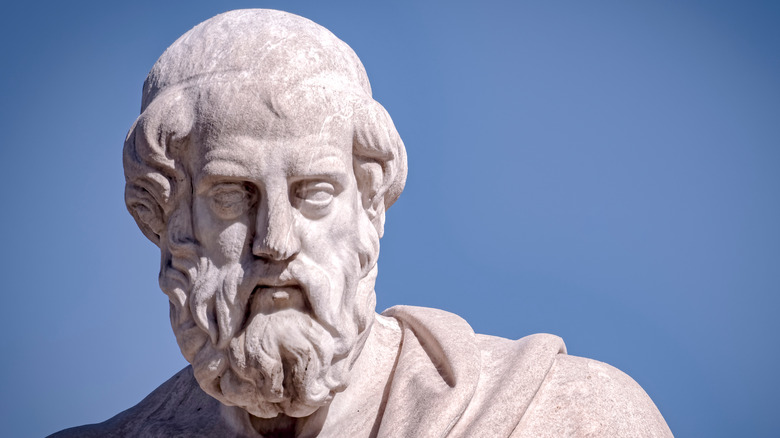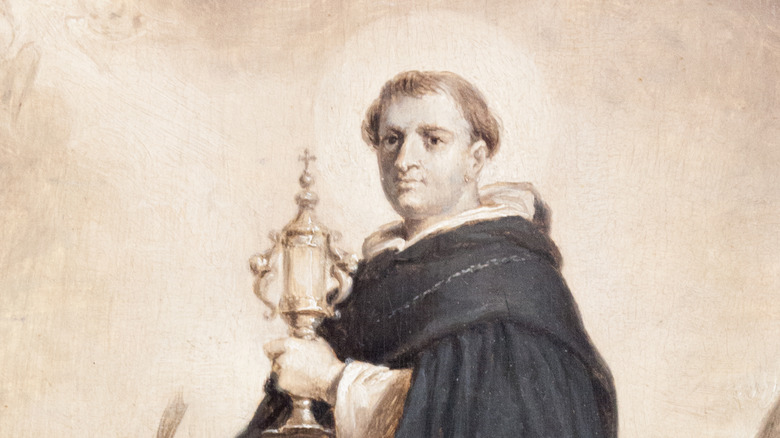What Are The 4 Cardinal Virtues And What Do They Mean?
All right, internet denizen. Put the cat videos away for a second; it's time for a pop quiz. After all, you've got access to all of the human knowledge via your glowy little screen, so you should be able to answer this question without breaking a sweat: What does it mean to be a good person? How should you live your life?
"That's easy," you're no doubt saying. "Just don't be a jerk, or whatever." All you've done is kick the can down the road, though: Now we have to answer the question of what it means to be a jerk. And how you avoid being a jerk. And to what end we avoid jerkiness. And what of the dilemmas we'll inevitably face when we're forced to choose between two horrible options, each equal in their jerkiness? Is it possible there are limits even to the "don't be a jerk" philosophy? Let's think more seriously, class: What does it mean to be a good person?
Fortunately, our friends Plato, Aristotle, and St. Thomas Aquinas have done a lot of the thinking here for you (via Catholic Education Resource Center). Let's talk about the four cardinal virtues.
Here's the history of the 4 cardinal virtues
People have been arguing about how to lead a moral life ever since the word "moral" was invented. But it was Plato — y'know, one of the guys who more-or-less invented modern philosophy — who boiled moral thought and action down to four foundational characteristics that everyone ought to strive for: prudence, justice, fortitude, and temperance. There are probably other virtues, Plato figured, but all of them spring from those four (via Stanford Encyclopedia of Philosophy).
Other philosophers developed these ideas — notably Aristotle in "Rhetoric" — but it was medieval philosopher and theologian St. Thomas Aquinas who really took the four and hammered them out into the foundation for essentially all modern ethical systems (via Koinonia). He also added three "theological virtues" — faith, hope, and love, which he actually borrowed from St. Paul the Apostle — but that's a whole other topic for a whole other time. Let's take a quick look at each of the virtues as Thomas described them. Then (we promise) you can get back to your cat videos.
The 4 virtues, defined
According to St. Thomas Aquinas's seminal work "Summa Theologica," prudence is the first and most foundational of all the virtues. Prudence is what modern thinkers might also call "reason" or "wisdom" — the ability to think things through or judge correctly. Fundamentally, though, it's not simple, cold, logic inside the brain; true prudence leads us to recognize our capacity for error, which means we'll seek out the counsel of others.
Next in Aquinas's ranking is justice, which he defines as "the perpetual and constant will to render to each one his right." According to Learn Religion, while many might think of "justice" as a negative virtue — giving criminals "what they deserve," e.g. — it's primarily a positive virtue, compelling us to perform our duty to each other and stand up for each other's rights.
The third virtue of the four is fortitude, which you might know as "bravery"; for Aquinas, however, fortitude is defined as the ability to "remove any obstacle that withdraws the will from following the reason." In other words, it's not about taking dares or playing chicken — it's about standing for prudence and justice, even when there is great cost in doing so.
Finally, the virtue of temperance is the ability to restrain passions and desires. Everyone desires things — food, money, sex, cat videos — and while it's often good to meet those desires, chasing them excessively can undermine prudence, justice, and fortitude.
So there you have it. Now go watch those cat videos ... ethically.


